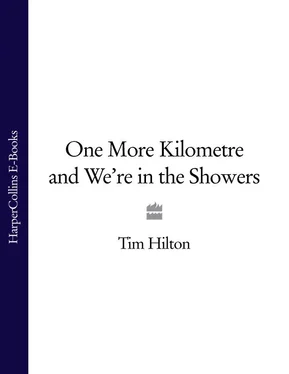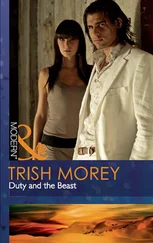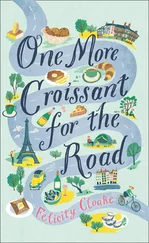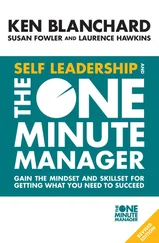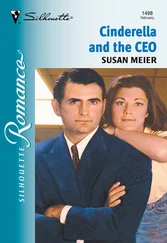In Paris in my teenage years I saw Fausto Coppi in action – and took a photograph of him! Not a good one. At the same period I observed the rituals of English club runs and rode every spring to the cyclists’ annual gathering at the church at Meriden in Warwickshire. These dissimilar experiences were part of my novitiate, and the present book is concerned with differences between British and continental cycle sport.
A declining number of people know about the Meriden service. I doubt whether there is anyone who is not an old British cyclist who would recognise a Frank Patterson drawing, or salute the long history of the Clarion clubs, or give renewed applause to Ray Booty’s 100 or Eileen Sheridan’s End-to-End. I’ve written about such matters because they ought to be placed in a book. Our native cycling has long traditions that will soon be lost. Many cycling bodies are now about a century old. My own allegiances are of more recent times. They are owed to a network of clubs and individuals who came together in the later years of the last war, the British League of Racing Cyclists. Great rebels! Up the League! The BLRC was not merely about racing. It was a social movement. The League was made up of men (they were almost always men) who felt little respect for their elders and wished to have some experience of French and Italian life, if only from afar. They liked the thought of money but expected that their jobs would always be of an ordinary sort. Leaguers had had a strong sense of style and enjoyed glamour almost as much as they relished their disputes. They had no political agenda but would not be told what to do. And they have not gone away.
It is now difficult to trace the history of the British League of Racing Cyclists. The confusion is part of the League’s anarchist legacy. Half a century on, its veterans often revisit old battles. Are these twinkling-eyed, grizzled men stirring the embers of memory? No. Their purpose is to pour paraffin into the fireplace. Many of them are still racing, though now in their seventies. That’s a part of cycling, a sport in a world of its own. Old wheelers continue in our youthful ways and do so until we drop from the tree. As the motto puts it, ‘We’re all young on the bike’.
Everyone has their story of the way they became a cyclist, and this is mine.
I was an only child. My parents were communists. They had joined the Party – the Communist Party of Great Britain, that is, but known to us simply as the Party – when they were Oxford undergraduates in the 1930s. My father had won a splendid scholarship from Manchester Grammar School. He was the son of a weaver, John James Hilton of Middleton, who later became the manager of the local co-operative society. Nowadays a suburb of Manchester, Middleton was in John James’s time an independent village with customs and traditions of its own, some of them still rural, others connected to the weaving trade. By ‘John James’s time’ I mean long ago, at the beginning of the twentieth century. My father never knew his father. A motor car had run over him as he was cycling from work to his home.
My father’s mother was also a weaver. She was sent to the mill at the age of twelve. I remember her Lancashire accents describing how, at mid-morning, she and other girls were allowed to leave their places at the looms to run down to the nearby fast-flowing river ‘to play’. Those little wage-earners were still children when they were made to work. In later life my father, Rodney, was her youngest and favourite child. She wished that he would never leave her.
I refer to my father as ‘Rodney’ because I was never allowed to call him ‘Dad’. This was one of the conventions of the intellectual wing of the Communist Party. Children spoke to, and of, their parents by using their first names. I do not know what anyone hoped to gain from this practice. It certainly did not promote family love and intimacy. Probably the idea was that children should consider themselves as part of a larger family, or something bigger and better than any family could be – the Party.
My parents were mismatched and had grown apart in the years when Rodney was fighting in the north African desert. I remember them mainly as hosts to other Party members. Our Birmingham home was the centre of a quite large community of local Marxists. The local Party branch had a strength of about twenty comrades. Their meetings were held every Thursday evening at our house, 90 Bristol Road, near the corner of Speedwell Road, from 1948 to 1956. My task was to pour beer for the comrades after they had finished their business. At a quite early age I was allowed (‘compelled’ might be a better word) to take part in the discussions. Little wonder that, ever afterwards, I have done my best not to attend meetings of any kind. I don’t even go to the AGM of my own cycling club.
Our Party branch, which was based in the University of Birmingham, had quite a good run. There were eight years of regular meetings and other activities – demonstrations, summer schools, pamphlet distribution, and so on – before the collapse of British communism in 1956. This was the world of my childhood. It made me into a cyclist. Cycling is not a middle-class sport and in the 1950s was certainly not practised by university people. But I wanted the life of the bicycle. I became a cyclist because I was brought up as a communist, which made me classless. I am also devoted to the bike because it represents freedom. And, as I was soon to find, cyclists had a generosity that did not exist among the crazed Stalinists of my early days.
Before I got a bike it was already obvious to me that there was a life of friendship and pleasure beyond the four walls of the Party branch meeting. From my chair near the door (comrades always sat in the same places, week after week) I could gaze through the window and dream while some paper on culture or industrial strategy was being read. During the past half century capitalism has ceased to be a progressive force; the bourgeoisie has ceased to be a progressive class; and so bourgeois culture, including poetry, is losing its vitality. Through the window I could see the pear tree and thought of its fruit. Our contemporary poetry is not the work of the ruling class – I wonder how long this talk will last what does big business care about poetry? – but of a small and isolated section of the community , I wish I had more mates at school the middle-class intelligentsia I can see to the very top of that pear tree spurned by the ruling class when he shuts up I can go to the kitchen to get the beer but still hesitating to join hands with the masses of the people now that the cloud has come over by the Pershore Road the pear-tree leaves look silvery, not green the proletariat, who alone have the strength why doesn’t my mother play the piano any longer? to break through the iron ring of monopoly capitalism!
It was characteristic of these talks that, just when a boy thought that a conclusion had been reached, the comrade coughed, lit another cigarette and started up again, like a car revving up after a breakdown. And so bourgeois poetry has lost touch with the underlying forces of social change. I wonder if I could be a poet. It is no longer the work of a people, or even of a class, but of a coterie. Hasn’t he said that before? Unless the bourgeois poet can learn to reorientate his art, he will soon have no one to sing to but himself …– And my present-day reader will understand that, as soon as I had a bicycle, I could indeed sing to myself. The bike was my escape from the dullness and conformity, and I would even say the ugliness, of a communist household.
When I was eleven Rodney and Margaret, trying to maintain or revivify their marriage, went to France and Italy without me. I was to stay with Margaret’s parents in their big house in Raynes Park, which is at the further side of Wimbledon. (Raynes Park is notable as a catchment area for the Redmon Cycling Club, whose name is an anagram of Morden.) My grandparents were gentle people, old, each of them absorbed in their own thoughts. Early on the morning of my parents’ departure I went and hid in a creosoted shed in the garden and then in the Raynes Park church. I thought that Rodney and Margaret would not dream of searching the church, and I was right. And I reckoned that they had to catch their boat train or all would be lost to them. So it was. Off they went without saying goodbye, which is what I wanted.
Читать дальше
